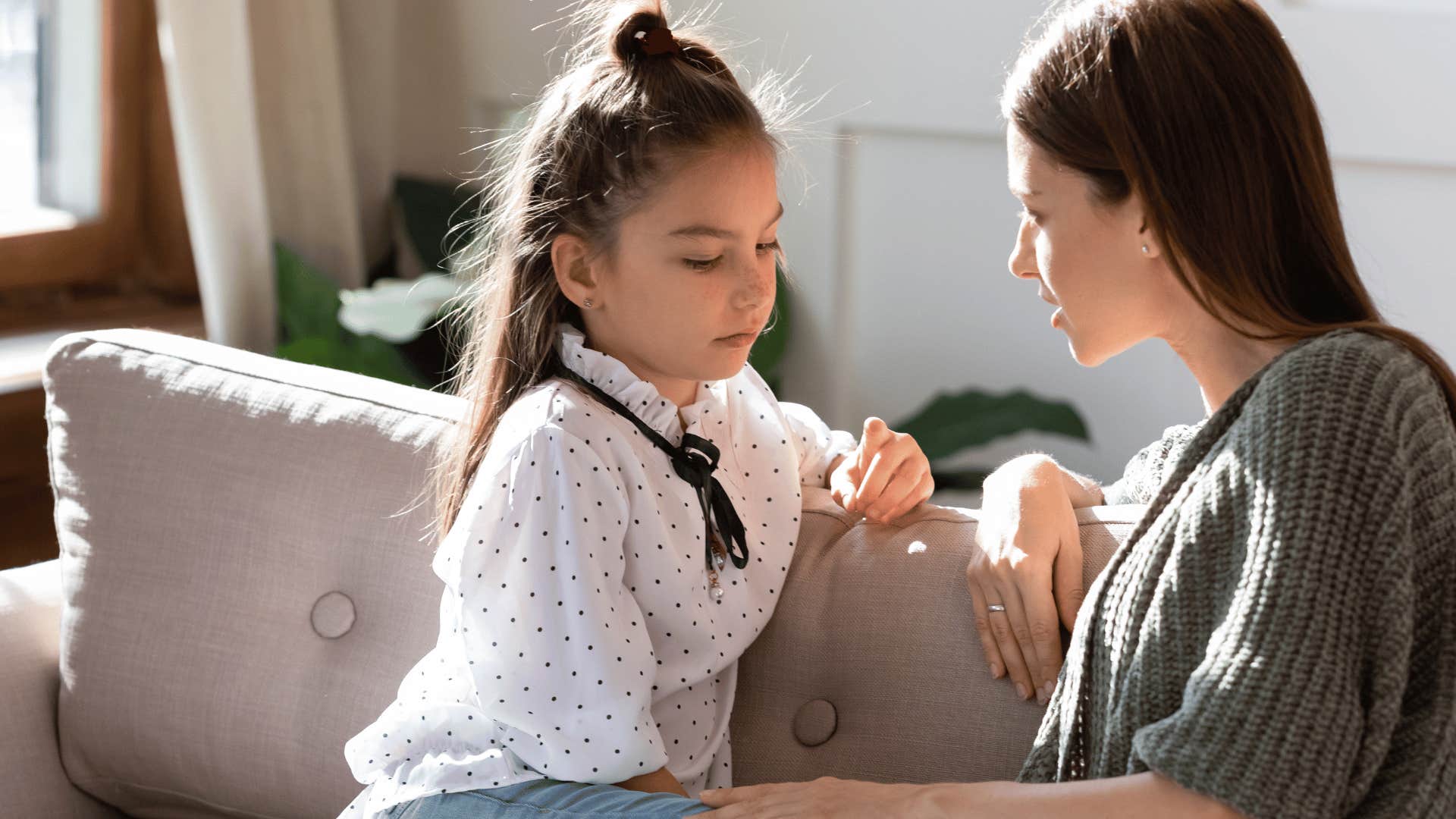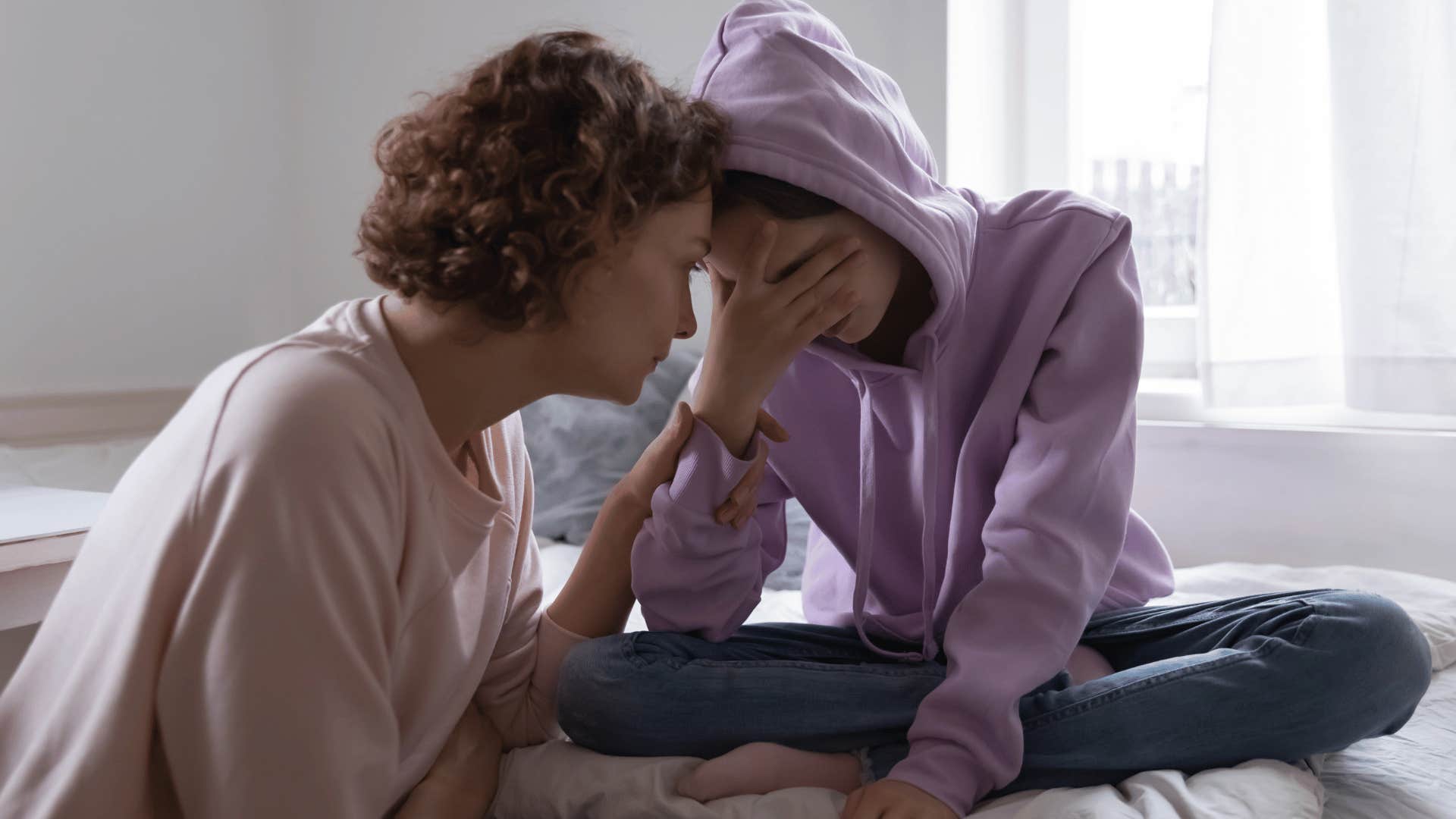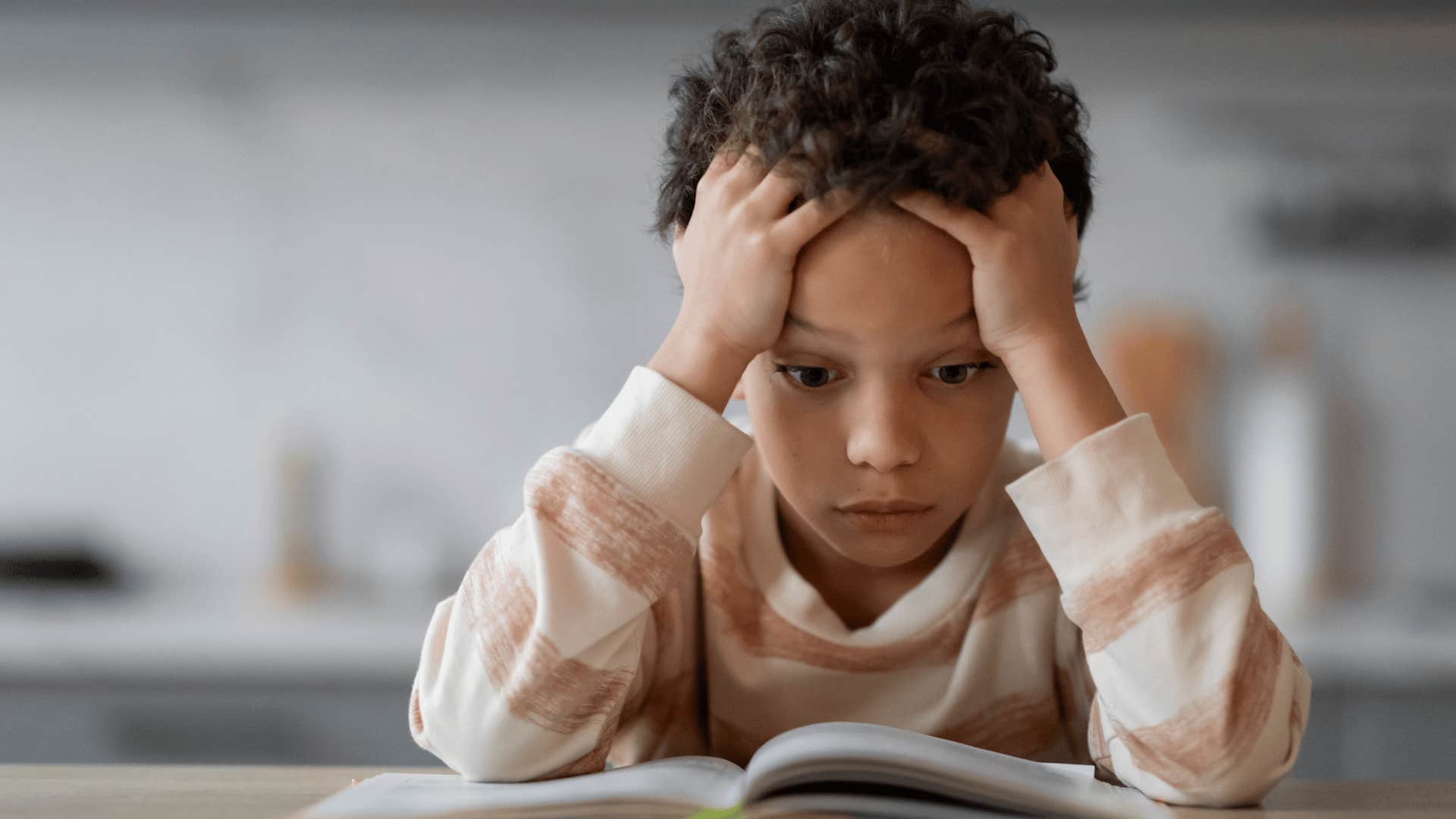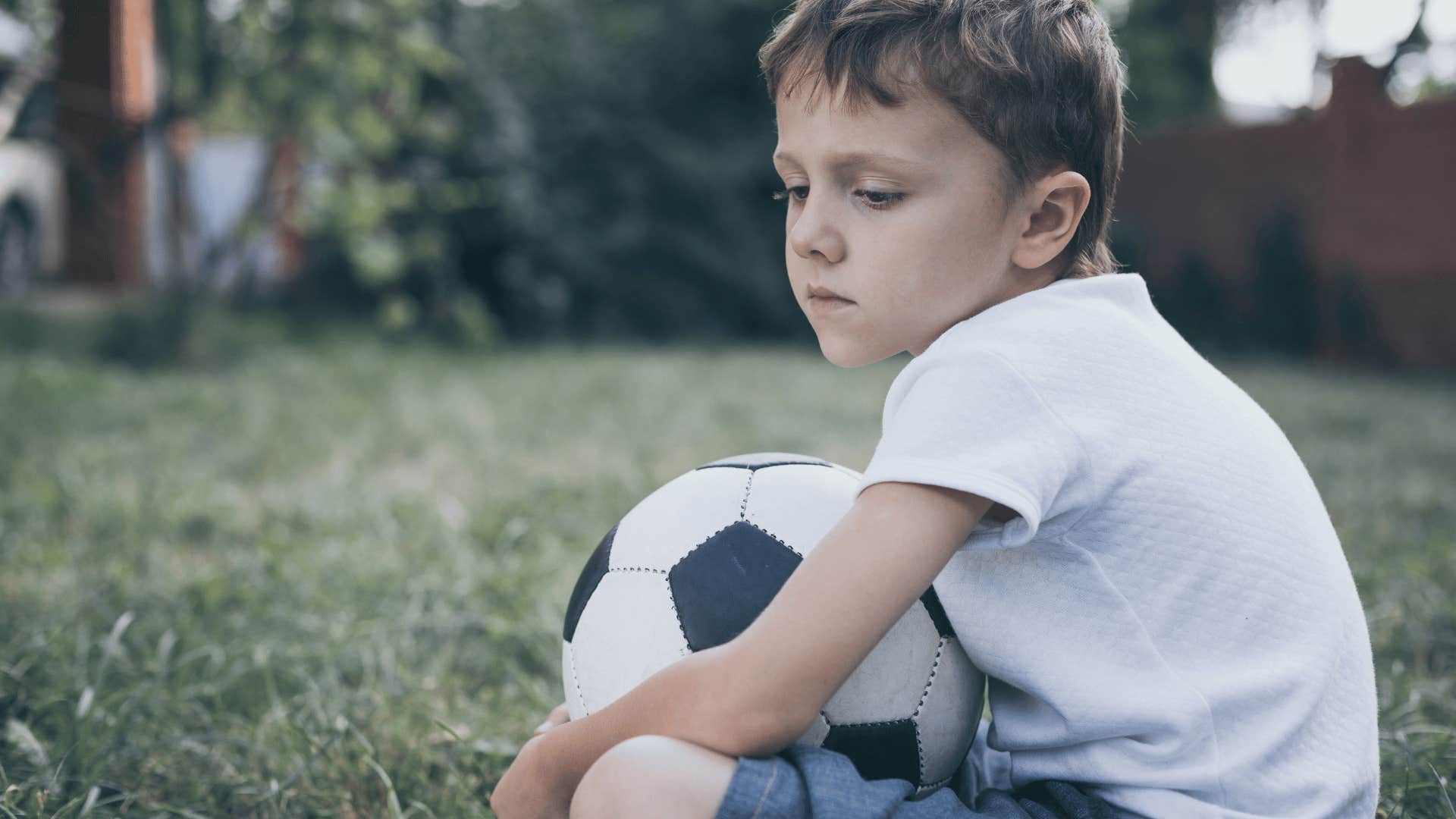If You Hated Your Parents For Any Of These 11 Reasons Growing Up, You Should Probably Thank Them Now
These behaviors may have equipped you with the skills, mindsets, and habits to thrive in adulthood.
 Kichigin / Shutterstock
Kichigin / Shutterstock Many of the habits, behaviors, and lessons our parents taught us as children turn out to be incredibly beneficial for our development and well-being in adulthood, even if we didn't appreciate what our parents were doing at the time. Many of the parenting decisions kids resent most are those that truly make a difference in shaping the person those same children grow up to be, so if you hated your parents for any of these reasons growing up, you should probably thank them now.
Of course, there’s a big difference between hating your parents for making you play a sport or read a book and being forced to endure childhood trauma like guilt-tripping behaviors or emotional manipulation. It’s important to note that there’s no need to thank — or even maintain a relationship in adulthood — with a parent that sabotaged your well-being, relationships, and health, even if you feel a societal or familial pressure to do so.
That said, if you hated your parents for any of these 11 reasons growing up, you should probably thank them now
1. Having a bedtime
 bbernard | Shutterstock.com
bbernard | Shutterstock.com
Of course, getting enough sleep at night is incredibly important for a child’s physical development and energy levels, but a study published in the Journal of Developmental Behavioral Pediatrics also suggests that maintaining a consistent sleep schedule and routine growing equip children with better emotional regulation and critical thinking skills.
Of course, the healthy bedtime routines that we might’ve despised our parents for making us follow — like having a healthy snack, brushing our teeth, and taking our phones — are the same ones that promote better emotional, social, and physical outcomes for us now, and go far beyond simply getting enough sleep.
2. Eating fruits and vegetables
 Yuganov Konstantin | Shutterstock.com
Yuganov Konstantin | Shutterstock.com
You’ve probably experienced the fruits and veggies debate if you’re a parent — trying to bargain with your kids about eating a nutritious meal for the sake of their brain health and to maximize their growth spurts. While it’s no easy feat to encourage kids to follow a nutritious diet with fruits, vegetables, and protein, it pays off in the long run.
Of course, research from the CDC shows that children who follow a consistent nutritious diet have better physical outcomes, cognitive abilities, and emotional benefits, but in adulthood, these same children now have a routine.
Not only do they understand how eating nutritious foods boosts their wellbeing, they have the knowledge to replicate that diet in their adult lives — helping them to craft a better routine, even when they’re not living at home or with their parents anymore.
3. Mandatory family dinners
 PeopleImages.com - Yuri A | Shutterstock.com
PeopleImages.com - Yuri A | Shutterstock.com
According to experts from Harvard University, prioritizing family mealtimes can be hugely beneficial for kids. From boosting beneficial physical health outcomes with family bonding time and home-cooked meals, to emotionally benefitting from healthy conversation and social interaction, kids can truly gain a lot from even having one mandatory family meal a week.
However, especially as kids grow up and have more on their plates, coupled with the stress and chaos of their parents’ routine, these dinners can feel like more work than they’re worth. But, studies like this one show that they’re worth prioritizing — even if your kids hate their parents for it at the moment.
4. Having family check-ins
 Fizkes | Shutterstock.com
Fizkes | Shutterstock.com
The last thing most of us wanted to do as kids after a long day or a stressful argument was to sit down with our parents and talk it out, but research shows that these casual family check-ins can be incredibly beneficial.
According to a study published in the Social Work journal, kids who are encouraged to learn and practice open, honest, and thoughtful communication from their parents are less likely to experience adverse emotional and physical health outcomes later in life.
Not only do these skills equip them to form better relationships in adulthood, they can fend off mental health struggles like depression and anxiety, encourage better emotional regulation, and even support better success in the workplace.
5. Getting a ‘time out’
 DimaBerlin | Shutterstock.com
DimaBerlin | Shutterstock.com
According to licensed psychologist Steve Mazza, research shows that parents who give their kids “time outs” for misbehavior equip them with important emotional regulation skills. Not only does this kind of discipline, over transactional reward/punishment systems, encourage personal and emotional growth that follows them later in life, it generally reduces misbehavior over time.
Setting boundaries and crafting consistent discipline routines can be uncomfortable and difficult for even the most highly trained professionals, let alone parents doing it for the first time, so if you hated your parents for any of these reasons growing up, you should probably thank them now, because you likely have more emotional intelligence to show for it.
6. Showing you affection
 Fizkes | Shutterstock.com
Fizkes | Shutterstock.com
If your parents showed you consistent affection as a child — giving hugs, kisses, and physical guidance — chances are you have better mental and physical health outcomes than your peers in adulthood, according to researchers from Harvard University.
While many of us were known to dodge hugs from our parents or shy away from affection after an argument at home growing up, it’s exactly this kind of parental warmth that helps kids to build self-esteem, self-worth, and emotional intelligence later in life.
7. Doing homework, even when you didn’t want to
 Prostock-studio | Shutterstock.com
Prostock-studio | Shutterstock.com
You don’t need motivation or self-discipline to be productive — it’s possible to simply “do” your tasks and fulfill your responsibilities, even when you’re tired, upset, or stressed out. Of course, crafting this habit is easier said than done, but kids who grow up without parents who instill this ideal in them from a young age tend to be worse off for it in their personal and professional lives in adulthood.
From doing homework, to completing chores, and showing up for family gatherings, parents who taught their kids this healthy mindset remind them that their mood doesn’t have to affect their productivity. They don’t have to fall into a toxic cycle where every other part of their life suffers when they’re having a bad day — whether it’s personal hygiene, their homework, or their general workload around the house.
8. Making you read daily
 zEdward_Indy | Shutterstock.com
zEdward_Indy | Shutterstock.com
As a kid, who believes they always have better things to do than read at the end of the day, it’s easy to resent your parents for prioritizing it as a hobby in your daily routine.
However, research highlighted by experts from the Child Mind Institute shows that parents who consistently read with their kids or urge them to adopt the hobby on their own, help to boost cognitive skills, critical thinking, and reading comprehension in their children.
So if you hated your parents for making you read as a kid, you should probably thank them now, because you’re better off in places like the workplace that tend to require critical thinking skills and general reading comprehension to succeed.
9. Setting limits on screen time
 Dmytro Zinkevych | Shutterstock.com
Dmytro Zinkevych | Shutterstock.com
Especially for young millennials and Gen Z, who either entirely or partially grew up around technology, devices, and social media, many kids can probably remember the frustration they had with their parents for taking away their phones or limiting screen time after school.
While it’s certainly one of the things many people hated about their parents, they should be thanking them now, especially as more research unveils the true threats of this technology on childhood wellbeing and development.
One study published in the journal Cureus found that excessive screen time can leave a lasting impact on young children, negatively affecting cognitive development, executive functioning, academic outcomes, and general mental health. Another published in the BMC Public Health journal argues that more than an hour of screen-time for children can lead to adverse health outcomes later in life affecting sleep, mood, and developmental functions.
10. Forcing apologies
 Dikushin Dmitry | Shutterstock.com
Dikushin Dmitry | Shutterstock.com
You’ve probably been there — you’ve just had a fight with a friend or a sibling and your parent intervenes, "forcing” you to apologize and reconcile your bad behavior. Whether it was nasty name-calling or a physical altercation, you begrudgingly forced an apology — a real one after several tries — but definitely hated your parents for making you do it for days, even weeks, afterward.
However, as many of us now realize in adulthood, having the ability to genuinely apologize and take accountability for hurtful behaviors is the key to crafting and maintaining healthy relationships in adulthood. It doesn't matter if you had good intentions or didn’t mean it, sometimes you’re forced to give a genuine apology in adulthood when you hurt someone’s feelings.
Children who learn this skill and practice it often as kids, oftentimes forced by their parents, are equipped with the tools to nurture better relationships later in life. So, if this sounds like you — a trouble-maker always forced into giving apologies — you should probably thank them now.
11. Making you play a team sport
 altanaka | Shutterstock.com
altanaka | Shutterstock.com
It’s true that not everyone has the same interests. Some people fully identify with their sporty personalities growing up — playing multiple sports, getting in neighborhood pick-up games after school, and exercising for enjoyment — while others are more creative and interested in quite the opposite.
However, many parents still make their children try out team sports at school or as an extracurricular, and if you hated your parents for this reason growing up, you should probably thank them now.
According to a 2024 study from The Netherlands, kids who play team sports growing up have better executive functions, social skills, and emotional regulation. Of course, there are many benefits to basic exercise for kids, as well, helping to support their mental and physical wellbeing, even into adulthood.
Zayda Slabbekoorn is a staff writer with a bachelor’s degree in social relations & policy and gender studies who focuses on psychology, relationships, self-help, and human interest stories.

